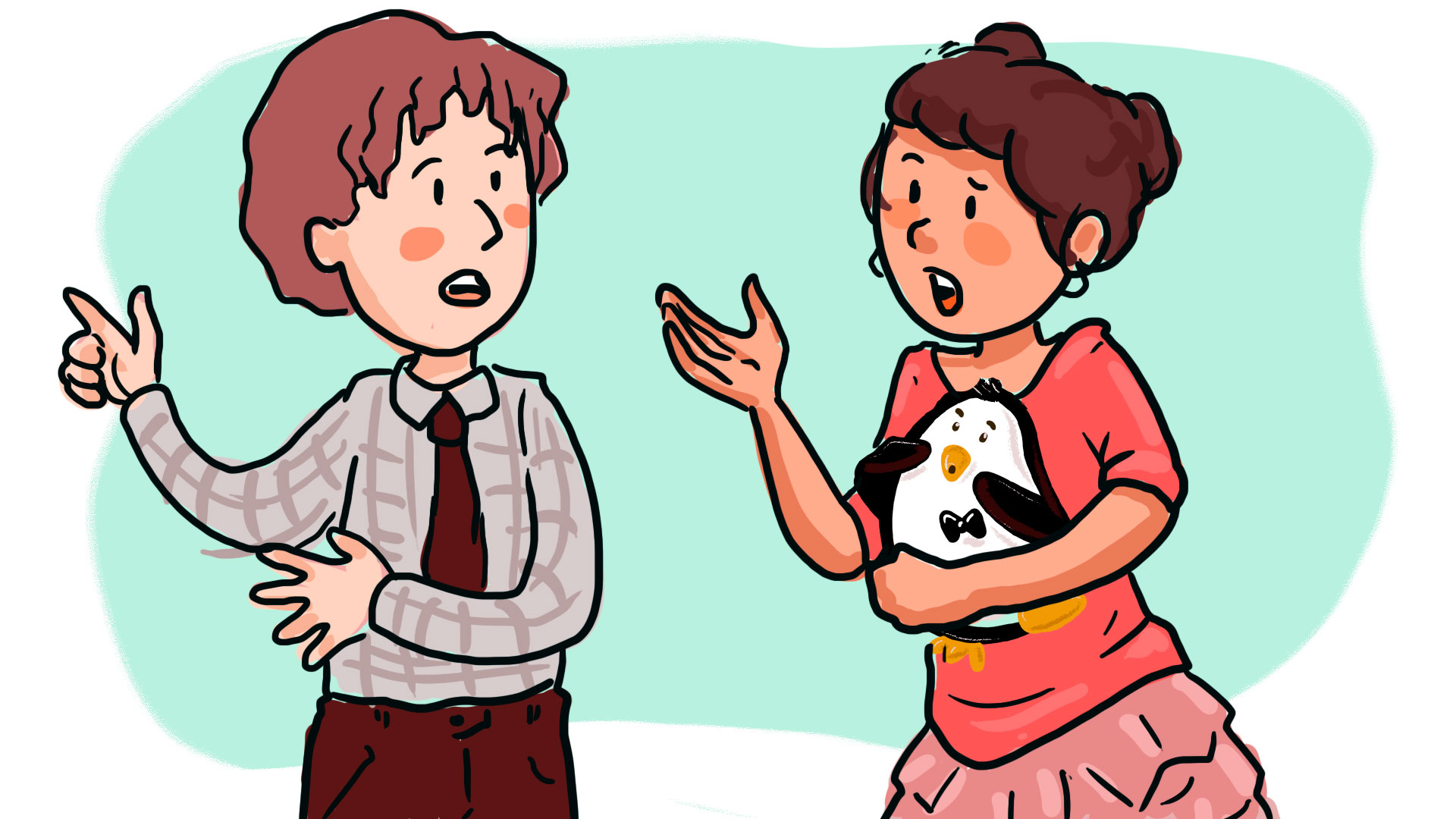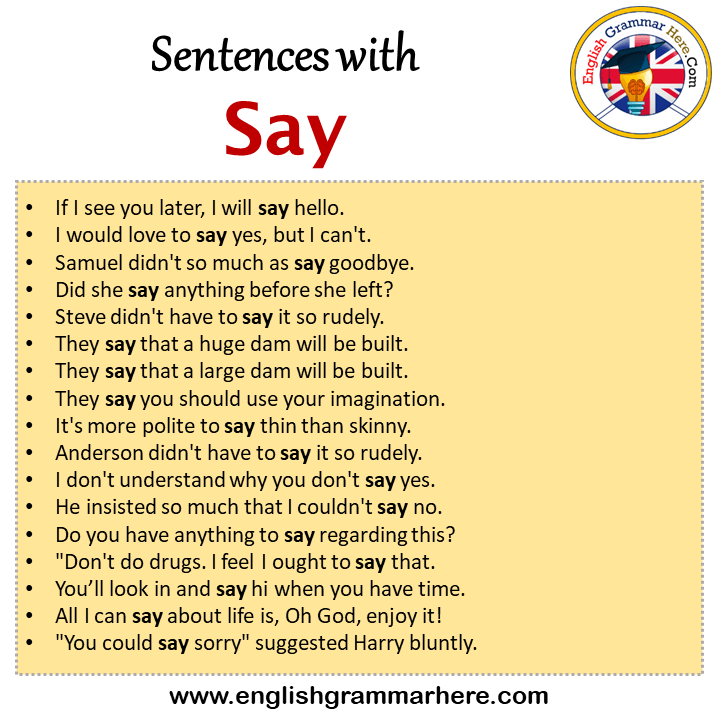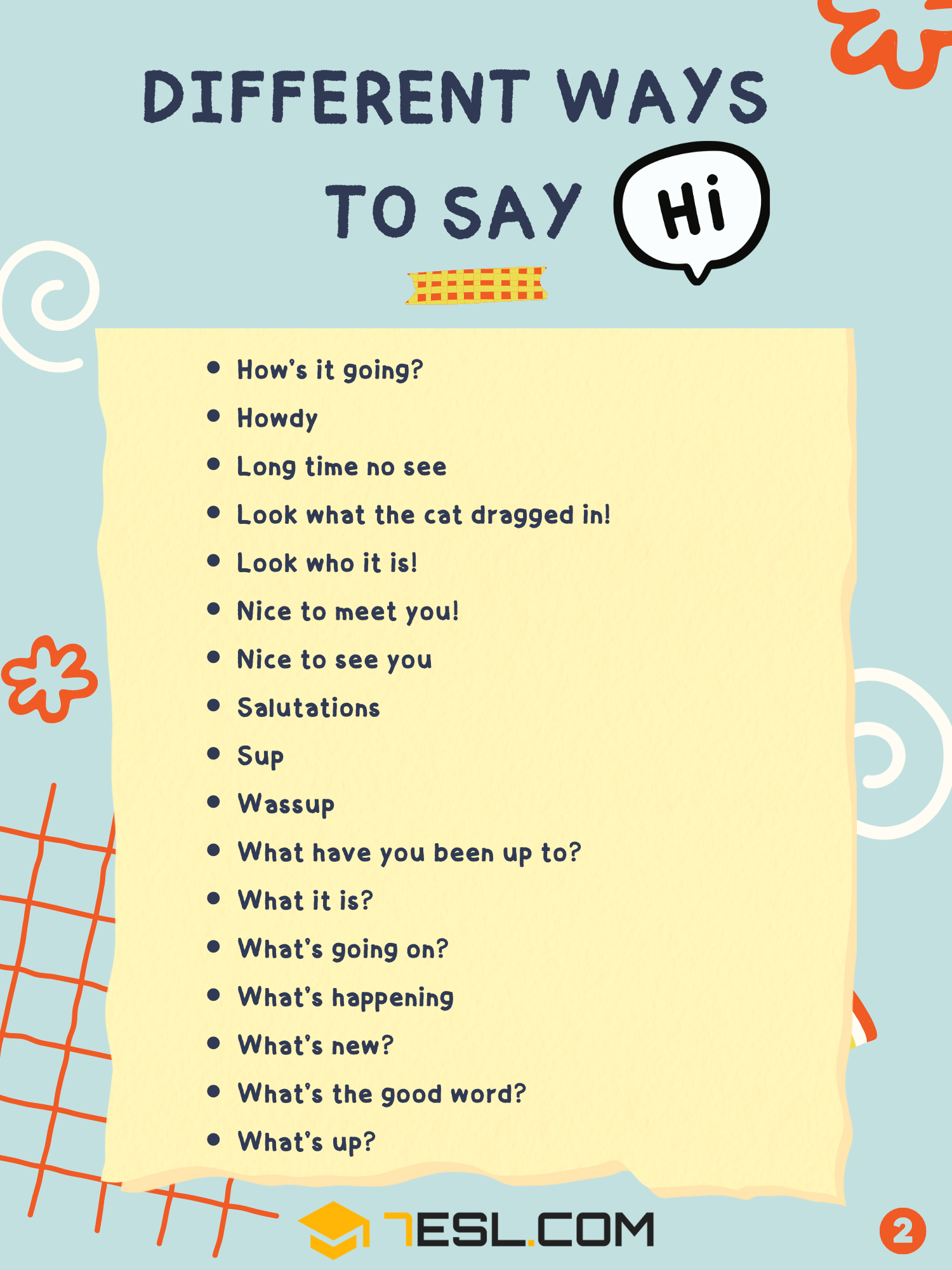How To Say Shut Up In German: Understanding Nuances And Context
When learning a new tongue, grasping how to express thoughts and feelings is pretty important, isn't it? Many people, it seems, are curious about how to say certain things, like a very direct command to be quiet, in German. It's a phrase that carries quite a punch, and knowing its true weight in another language is, well, just smart. You see, the way we "say" something, as my text points out, involves more than just picking words; it's about conveying an idea, an instruction, or even a feeling, and that can change a lot depending on who you're talking to and where you are.
The words we choose, and how they come out, truly shape what people hear. For instance, my text mentions how "say" can mean to express something, to state an opinion, or even to give an instruction. So, when you think about how to say something like "shut up" in German, it's not just a simple word-for-word swap. You're actually trying to convey a very strong instruction, perhaps even a demand, and that comes with a whole lot of unspoken meaning that Germans, or any language speakers, will pick up on. It's about how you utter words or sounds, really.
Knowing the right way to approach such a phrase is, therefore, quite useful. It helps you avoid misunderstandings, which can be, you know, a bit awkward. Our aim here is to shed some light on the various ways you might hear or, indeed, say something like "be quiet" in German, from the very blunt to the much softer options. This information is, in a way, pretty vital for anyone wanting to get along well in German-speaking places.
Table of Contents
- Why This Topic Matters: More Than Just Words
- Who Needs to Know This?
- The Direct Approach: "Halt die Klappe!"
- Polite Ways to Ask for Quiet
- "Sei ruhig!" – Be Quiet!
- "Ruhe bitte!" – Quiet, Please!
- "Könnten Sie bitte leiser sein?" – Could You Please Be Quieter?
- "Darf ich Sie bitten, etwas leiser zu sprechen?" – May I Ask You to Speak a Little Quieter?
- Understanding German Directness and Politeness
- Alternatives to Direct Commands
- Frequently Asked Questions About German Expressions for Quiet
Why This Topic Matters: More Than Just Words
Knowing how to say "shut up" in German is, quite frankly, a pretty common question for those learning the language. It's often one of those phrases people pick up from movies or, you know, other media. However, the impact of such a phrase in real life can be very different from what you might expect. My text, for example, talks about how "say" means to express in words, and that includes conveying thoughts or instructions. So, when you choose words for a strong command, it's not just about the sounds; it's about the full weight of what you're trying to communicate, and that can really shape how you're seen.
There's a lot more to saying something than just the actual words themselves. The way you utter them, your tone, and the situation all play a big part. My text points out that "say" involves expressing a thought or suggestion, or stating a fact, and it also mentions how difficult it can be to "say it tactfully." This is very true for direct commands. If you say something like "shut up" in German without thinking, you might accidentally give a very harsh or impolite impression, which is probably not what you want.
Understanding the different levels of directness and politeness is, therefore, quite important for effective communication. It helps you avoid awkward moments and, you know, build better connections with people. Learning these nuances is, in a way, just as important as learning the words themselves, as it helps you speak with a bit more grace and understanding.
- Ixl Answer Key
- Melania Trump Hamburglar
- Wolf Next To Human
- Skeleton Dress To Impress
- Levees Around House
Who Needs to Know This?
This information is pretty useful for a few different groups of people. Language learners, for one, often want to know the most common expressions, even the less polite ones, just to understand them if they hear them. Travelers visiting German-speaking countries, too, benefit from knowing what to say and what definitely to avoid to keep things friendly. Anyone who, say, interacts with German speakers regularly, perhaps in a casual setting, might also find this knowledge helpful. It's all about making sure your message is received as you intend it, which is, you know, a pretty basic communication goal.
It's also good for people who just have a general interest in language and culture. Understanding how directness works in German communication can shed light on, say, broader cultural values. This kind of insight can make your interactions much smoother, and that's a good thing, really.
The Direct Approach: "Halt die Klappe!"
When people ask how to say "shut up" in German, the phrase "Halt die Klappe!" is often the first one that comes to mind. This is, you know, the most direct translation, and it certainly gets the point across. However, it's a very strong phrase, and using it can have some pretty serious social consequences, so you should be careful.
What "Halt die Klappe" Really Means
Literally, "Halt die Klappe!" translates to something like "Hold your flap!" or "Hold your snout!" The word "Klappe" can refer to a flap or a trapdoor, and in this context, it's a rather impolite way to refer to someone's mouth. It's very much like saying "shut your trap" or "shut your gob" in English. My text talks about how "say" involves expressing thoughts or instructions. When you "say" "Halt die Klappe!", you are giving a very clear, very harsh instruction, and it definitely states your opinion or judgment about someone's speaking. It's a pretty strong declaration, you know.
This phrase is considered quite rude and aggressive. It's the kind of thing you might hear in a heated argument, or, say, among very close friends who are joking around in a very specific way. But even then, it's used with caution. It doesn't really fit the idea of "say it clearly and simply" if you're trying to be polite. It's a phrase that, frankly, cuts through any attempt at tact.
When You Might Hear It (But Probably Shouldn't Say It)
You might hear "Halt die Klappe!" in movies, or maybe, you know, in a very intense street argument. Sometimes, young people might use it among themselves, but even then, it's often meant to be a bit provocative. It's very rare to hear it in polite company, or in a professional setting. Using this phrase with strangers, or anyone you don't have a very close and specific relationship with, is almost guaranteed to cause offense. It's a bit like shouting at someone to be quiet, really.
For language learners, it's good to recognize this phrase so you understand its meaning if you encounter it. However, it's generally best to avoid using it yourself, especially if you're still getting a feel for German social customs. There are, you know, much better ways to express a desire for quiet.
Polite Ways to Ask for Quiet
Thankfully, German offers many ways to ask for quiet that are far more polite and appropriate for most situations. These phrases show respect and consideration, which is, you know, always a good approach. They allow you to "say" your request without causing a scene.
"Sei ruhig!" – Be Quiet!
"Sei ruhig!" translates directly to "Be quiet!" or "Be still!" It's a less aggressive option than "Halt die Klappe!" but it's still a direct command. This phrase is often used when talking to children, or, say, to someone you know well and can be a bit more direct with. It's not usually used with strangers or in formal settings, as it can still come across as a bit bossy. It's a bit like telling someone to "calm down," you know.
The tone of voice really matters with "Sei ruhig!" Said softly, it can be a gentle request to a child. Said sharply, it can sound quite stern. My text notes that "saying" involves conveying thoughts or instructions. This phrase, too, is an instruction, and how you "say" it, the actual pronunciation of words or sounds, really changes its impact.
"Ruhe bitte!" – Quiet, Please!
"Ruhe bitte!" is a very common and generally acceptable way to ask for quiet. "Ruhe" means "quiet" or "peace," and "bitte" means "please." This phrase is often heard in public places, like libraries, or, say, in a classroom. It's direct, but the addition of "bitte" softens it considerably, making it a polite request rather than a harsh command. It's a pretty straightforward way to express your need for silence.
This phrase is a good option when you need to address a group or, you know, when you want to make a general request for quiet without singling anyone out too much. It's a simple and effective way to "say it clearly and simply" while remaining polite.
"Könnten Sie bitte leiser sein?" – Could You Please Be Quieter?
This phrase is much more formal and polite. "Könnten Sie bitte leiser sein?" means "Could you please be quieter?" It uses the polite "Sie" form for "you" and the conditional tense ("könnten" - could), which adds a layer of respect. This is the phrase you would use with strangers, or, say, in a professional or formal setting where you need to be very respectful. It shows you're trying to be tactful, which my text says can be hard to do.
This is a good example of how to "say" something when you want to discuss something that might possibly be true, like someone being too loud, and you want to do so in a gentle way. It's an indirect request, giving the other person a chance to respond positively. It's a very considerate way to handle the situation, you know.
"Darf ich Sie bitten, etwas leiser zu sprechen?" – May I Ask You to Speak a Little Quieter?
This is another very polite and formal option, perhaps even more so than the previous one. "Darf ich Sie bitten, etwas leiser zu sprechen?" translates to "May I ask you to speak a little quieter?" This phrase is very deferential and shows a high degree of politeness. It's suitable for situations where you absolutely need to maintain decorum, like in a quiet office, or, you know, a very formal meeting. It's a way to state your opinion or judgment, but in a very soft manner.
Using this phrase indicates that you are giving the other person the "right or power to influence or make a decision" about their volume, rather than just issuing a command. It's about conveying thoughts and information in a way that respects the other person's space and autonomy. This is, you know, a very thoughtful approach.
Understanding German Directness and Politeness
When learning how to say things in German, it's important to grasp that communication styles can differ quite a bit from what you might be used to. Germans are often perceived as being more direct in their speech than, say, English speakers. This directness isn't usually meant to be rude; it's just a different way of getting to the point. My text talks about how "say" can mean to state an opinion or judgment, and Germans often do this very clearly.
However, this directness doesn't mean they are impolite. There's a clear distinction between being direct and being rude. Knowing which phrases fall into which category is pretty important for smooth interactions. It's about understanding the unspoken rules, you know.
Cultural Differences in Communication
In some cultures, people might use a lot of softening phrases or indirect suggestions to avoid seeming impolite. In Germany, while politeness is certainly valued, directness is often seen as a sign of honesty and clarity. If someone "says" something directly, it often means they are being clear about their intentions or observations. This can sometimes feel a bit abrupt to someone from a more indirect culture, but it's usually not meant to offend. It's just how they convey thoughts and information.
For example, if a German person says "That's wrong" (Das ist falsch), they're usually just stating a fact as they see it, not necessarily attacking you personally. This applies to requests for quiet too. A phrase like "Ruhe bitte!" is direct, but it's not rude; it's simply a clear request. Understanding this cultural preference for clarity can help you interpret what you hear and choose your own words more effectively, which is, you know, a pretty good skill to have.
The Role of Tone and Body Language
Just like in any language, the way you "say" something in German goes beyond the words themselves. Your tone of voice, facial expressions, and body language play a huge role in conveying your message and its true intent. A phrase that could be seen as direct, like "Sei ruhig!", can become much softer with a gentle tone and a kind look. Conversely, even a polite phrase can sound aggressive if delivered with a harsh tone or angry expression. My text mentions how "say" refers to expressing something through spoken words, and that includes how you pronounce words or sounds.
This is especially true for phrases asking for quiet. A soft "Ruhe bitte" with an apologetic smile is very different from a sharp, angry "Ruhe bitte!" The non-verbal cues are, you know, pretty powerful. Paying attention to these elements, both when you speak and when you listen, can help you avoid miscommunications and ensure your message is received as intended. It's about the full package of how you express yourself.
Alternatives to Direct Commands
Sometimes, you don't even need to use a direct phrase asking for quiet. There are often more subtle ways to get your point across, especially if you want to avoid any potential for conflict. These methods rely more on expressing your own needs or, say, subtly shifting the dynamic of the situation. My text says "say" can mean to express a thought or opinion, and these alternatives do just that.
Expressing Discomfort Without Being Rude
Instead of telling someone to be quiet, you could express that you are having trouble concentrating or hearing something. For example, you might say:
- "Ich kann mich nicht konzentrieren." (I can't concentrate.)
- "Es ist hier ziemlich laut." (It's quite loud here.)
- "Ich kann Sie/dich kaum verstehen." (I can barely understand you.)
These phrases state your own experience rather than issuing a command. They allow the other person to realize the impact of their noise and, you know, hopefully adjust their volume without feeling attacked. It's a way of saying, "This is my situation," which can be very effective. This approach is often much more tactful, which my text suggests can be a challenge when you need to "say" something difficult.
This method is pretty good for situations where you're in a shared space, like a cafe or a train, and you don't want to be overly confrontational. It gives the other person a chance to be considerate on their own. It's a bit like giving them a subtle hint, really.
Shifting the Conversation
If you're in a conversation that's getting too loud or boisterous, another strategy is to try to shift the topic or the setting. You could suggest moving to a quieter area, or, say, introduce a new, calmer subject of discussion. This changes the environment or the focus, which can naturally lead to a reduction in noise. My text mentions that "say" can involve discussing something. Here, you're discussing a change, which can indirectly lead to quiet



Detail Author 👤:
- Name : Lottie Trantow V
- Username : joana.graham
- Email : rashawn44@gulgowski.com
- Birthdate : 1998-08-08
- Address : 76386 Nikolaus Camp Suite 170 Steveshire, KY 35821-0252
- Phone : 661.858.7576
- Company : Raynor-Windler
- Job : Immigration Inspector OR Customs Inspector
- Bio : Ut aut ut voluptatem consectetur consequatur non. Reprehenderit consequatur porro suscipit qui autem aut ut ab. Nulla minus dicta qui earum officia.
Socials 🌐
linkedin:
- url : https://linkedin.com/in/botsfordj
- username : botsfordj
- bio : Labore commodi consequatur at.
- followers : 5388
- following : 2937
twitter:
- url : https://twitter.com/josefinabotsford
- username : josefinabotsford
- bio : Corporis deserunt earum reprehenderit reiciendis. Beatae soluta similique consequatur aut velit vel. Est unde modi eius dolor est est.
- followers : 420
- following : 2603
instagram:
- url : https://instagram.com/josefina_real
- username : josefina_real
- bio : Accusamus enim et quia blanditiis ipsam deleniti commodi. In ducimus rem quia quo odio tempora qui.
- followers : 2610
- following : 1972
tiktok:
- url : https://tiktok.com/@botsfordj
- username : botsfordj
- bio : Earum rem ipsam sit ut. Mollitia ut officia velit est minima.
- followers : 6955
- following : 2227
facebook:
- url : https://facebook.com/josefina_xx
- username : josefina_xx
- bio : Eum corporis ab et accusantium voluptatibus. Placeat est fugit vel nulla.
- followers : 2491
- following : 185